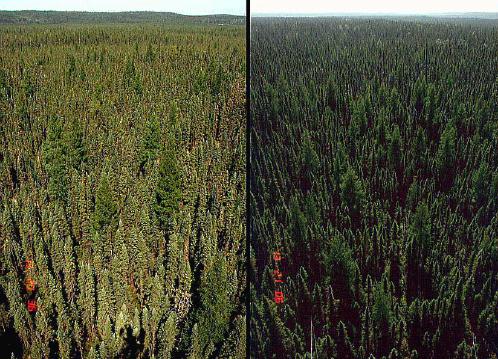Computing
& the Arts
2.
Computer Graphics and Drawing
Ray
tracing: Rendering realistic pictures of a scene
We need to model (create) the
scene (objects), its projection on a 2D image (retinal plan or window),
and the eye or camera (the observer) which will capture the rendered
image (viewpoint, focal length).
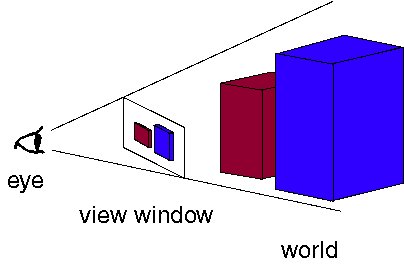
From [Rademacher:Ray:1997]
The color of a pixel in a window
is due to a light ray hitting a colored object and bouncing back toward
the eye through that pixel locus.

|

|
Tracing from
the light source: many rays are useless.
|
Approximation: Tracing from the
eye, through the window, towards an object, directly to the light
source.
|
Issue: Computational complexity versus (perceived) Realism.
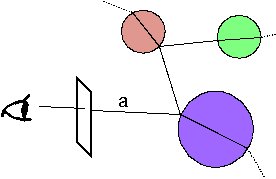
|
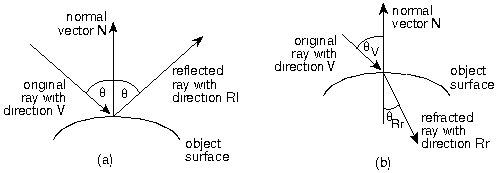
|
More
realistic: Follow the ray thru reflections and refractions (partial
transparency).
|
Modeling of
reflection and refraction via Snell's
Laws (geometric optics), where each medium (outside vs. object's
inside) has a particular (homogeneous) refractive index (ratio of the
speed of light in a vacuum over its speed in this medium).
|
Bidirectional Reflectance
Distribution
Function (BRDF):
- Gives the reflectance of a target as a function of
illumination
geometry and viewing geometry.
N.B.: The same target can look different under varying
illumination conditions ...
We can approximate complex surface (or volumetric) geometry by sampling
the BRDF of known material, such as velvet:

From [Rusinkiewicz:BRDF:1997]
Another "trick:" Texture mapping
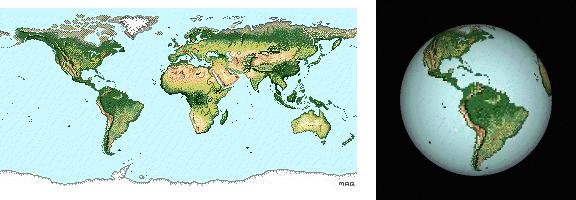
|

|
Mapping a rectangular texture
onto a sphere (globe).
[Rademacher:Ray:1997]
|
N.B.: The implicit goal of CG is not to
necessarily mimic (from approximations to exactness) the physics of
geometric optics for real scenes, light sources and eyes or cameras,
but rather to render "pictures which look real." (Hence the need
to also understand human visual perception.)
Lecture Notes by Fredo Durand
& Julie Dorsey (MIT):
- Photorealism versus
non-photorealism in CG

References
Durand:Art:2001
Rademacher:Ray:1997
Rusinkiewicz:BRDF:1997
Rusinkiewicz:BRDF:2004
Links
Cohen:LectureNotes:1999
BACK
Last updated: Nov. 19, 2007






